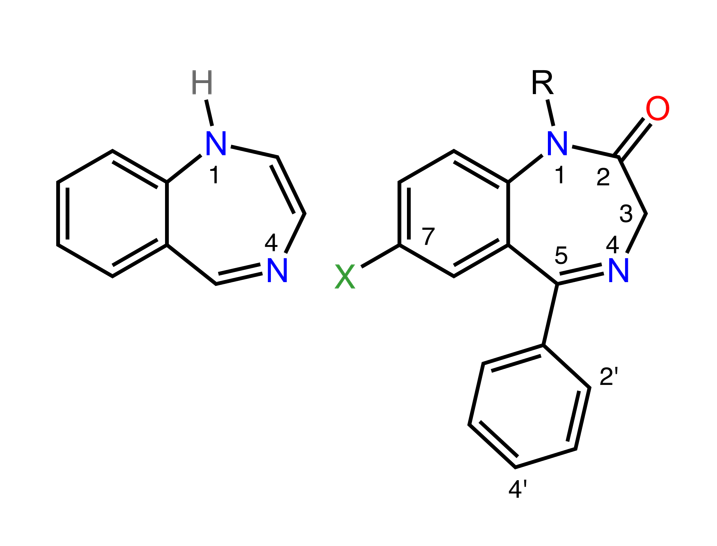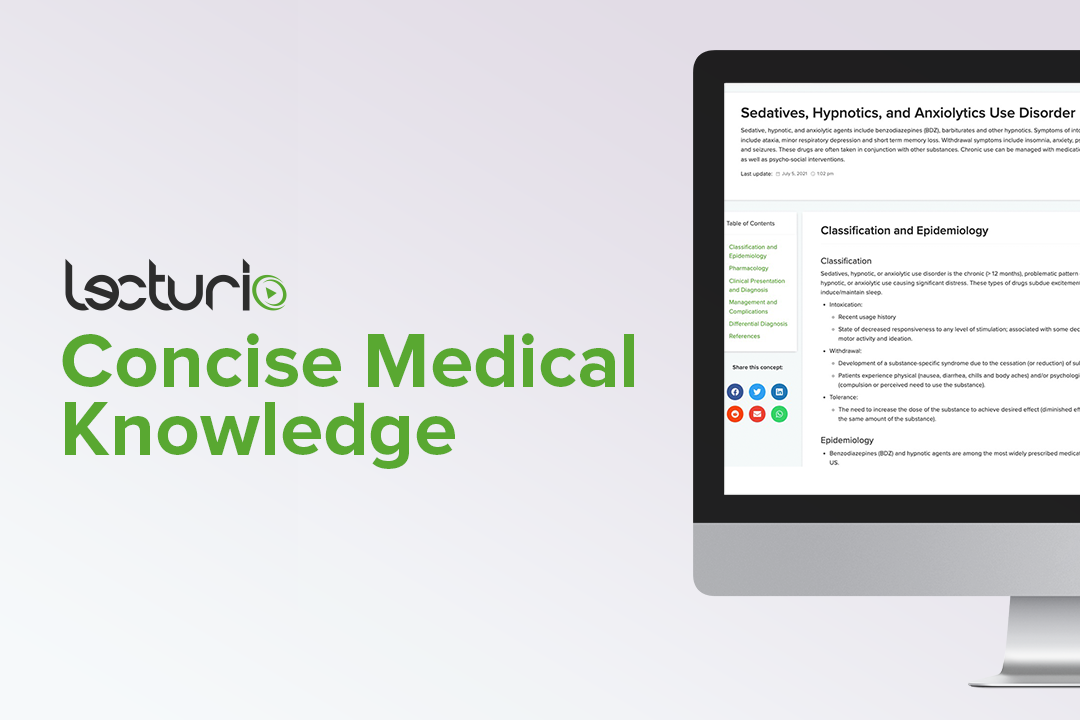Playlist
Show Playlist
Hide Playlist
Case Study – Sedative Hypnotics
-
Slides Sedative and Hypnotic Drugs CNS Pharmacology.pdf
-
Download Lecture Overview
00:01 Let's do another case study. 00:02 A 45-year old emergency room physician is complaining of anxiety, difficulty sleeping, and an inability to cope with the stresses of his daily job. 00:14 He gets buspirone prescribed to him. 00:16 The following are true about this particular medication. 00:21 A. The patient may not notice improvement for up to 10 days. 00:28 B. Buspirone has a high addictive potential and it should not be given to a person with ready access to multiple medications. 00:37 C. Buspirone acts through antagonizing orexin receptors in the brain. 00:43 Or D. Buspirone will cause sedation and motor coordination issues. 00:49 It should not be used in a person like an ER doctor. 00:53 Which one's true? Right. A is true. 00:58 In fact, this is a very good illustration of where buspirone is, is actually an advantages drug, because it doesn't cause a lot of psychomotor retardation or coordination issues. 01:08 It doesn't cause a lot of addictive issues. 01:11 And obviously, it does not act through the orexin receptor. 01:16 Let's go on to a second case study. 01:18 A 21-year old grocery store clerk complains of occasional rapid heart rate, complaints with sweating, some anxiety, and nausea. 01:28 Episodes are brought about when her supervisors present. 01:32 She doesn't complain of any of these symptoms when she's on holidays, or when she's in social circumstances not related to work. 01:40 The best medication to use in this situation is one of the following. 01:44 A. Propranolol, B. Eszopiclone, C. Zopiclone, D. Tasimelton, or E. Alprazolam. 01:56 So we have several good choices here. 01:58 But I think the best answer for this question is E. Alprazolam. 02:02 Alprazolam is an excellent anti-anxiety medication and it's good for situational anxiety. 02:07 One could suggest A. 02:09 But A, is a little bit different in the sense that it's purely a beta blocker. 02:13 If patients come to you complaining of, you know, pounding chest and pounding tachycardia prior to say doing a speech in front of a large audience, you might want to consider propranolol in that situation. 02:25 But I think in this particular answer, where she has multiple symptoms associated with anxiety, including the sweating and nausea, I think it's reasonable to go to alprazolam. 02:37 Okay, that's it. 02:38 You did really well. 02:39 Good luck on your exams.
About the Lecture
The lecture Case Study – Sedative Hypnotics by Pravin Shukle, MD is from the course CNS - Pharmacology.
Included Quiz Questions
Which medication is appropriate to treat situational anxiety?
- Alprazolam
- Norketamine
- Phenobarbital
- Amlodipine
- Propofol
Customer reviews
5,0 of 5 stars
| 5 Stars |
|
5 |
| 4 Stars |
|
0 |
| 3 Stars |
|
0 |
| 2 Stars |
|
0 |
| 1 Star |
|
0 |





